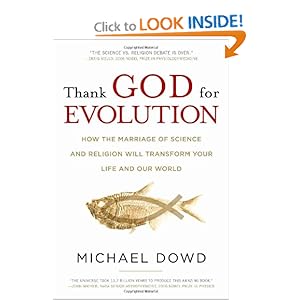This was the question: For a copy of The Nature of Nature , explain why either Richard Dawkins or Francis Collins is the cuter poster boy for selling Darwinism.
The question was first asked (that I ever heard of) by a prominent Canadian cosmologist, who wrote to a number of peers asking for feedback. He wanted a pollster to do a study too, but surely that would be a waste: We should only poll people on matters that will lead somewhere. Essentially, both these men are going to go away and do what they want, no matter what the tally, so why bother?
The winner is StephenB at 21, for clarity of analysis and precision of expression:
So, who is the better con man? In terms of gaining new recruits, I think Dawkins inspires more passion, but Collins probably gets better numbers. So, I give a slight edge to Collins. Whenever possible he avoids clarity of expression and practices the crafty art of “strategic ambiguity,” allowing potential supporters with widely divergent world views to read their own convictions into his message. Notice how, with maddening imprecision, he informs his listeners that there is “no conflict between religion and science,” prompting them to fill in the missing spaces with Christ and Darwin.
StephenB, write me at denyseoleary@gmail.com.
Incidentally, among those who cast a definite vote, it was a tie (not just Dawkins’ “nicer tie”). More below, but watch for the next contest. Read More ›
Vid. (opens on click), courtesy Wintery Knight Here’s a summary:
 Johnson meant that real Darwinists say what Darwinism entails (materialist atheism) and then Christian Darwinists rush in to announce that we can somehow harmonize it with Christianity by not taking seriously what Darwinists actually say. Explained in detail here. The analogy is to American football.
Johnson meant that real Darwinists say what Darwinism entails (materialist atheism) and then Christian Darwinists rush in to announce that we can somehow harmonize it with Christianity by not taking seriously what Darwinists actually say. Explained in detail here. The analogy is to American football. Will Provine, history of biology prof, has
Will Provine, history of biology prof, has  If so, maybe you are a Christian Darwinist and didn’t know it.
If so, maybe you are a Christian Darwinist and didn’t know it.